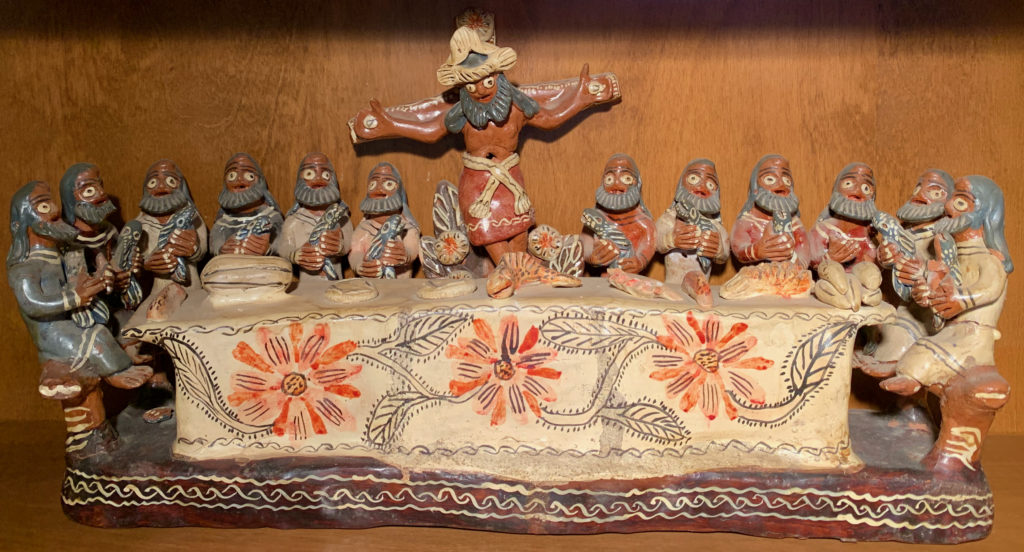
If you pay attention to scholars of Scripture, then you know that just about everything you thought you knew about Christmas is not in Scripture. It might not have been an inn, there was no taxation requirement that made everyone come back to their home town, there’s no reason to think that there were three magi, and the magi story and shepherd story don’t match up, it might not have been December 25, there almost certainly wasn’t snow, and “virgin” didn’t necessarily mean she hadn’t had sex.
But I have a lot of tolerance for people with various understandings of what Christmas means. In the early 80s, I was in a store in Baja California, and I fell in love with a representation of the Last Supper. In it, Jesus (on the cross) is at a table with people eating lobster, bananas, watermelon, and tortillas. Of course, Jesus didn’t eat tortillas and lobster at the actual Passover meal he had with his disciples, and he wasn’t on a cross at that dinner, and his cross wasn’t in cactus, but I love(d) that it was an understanding of Jesus in terms of their own lives.
I love the Staples Singers’ version of “No Room at the Inn,” which is about imagining Jesus’ birth in a segregated hotel, in which the bellboy, waitress, maid, and porter would have been welcome at his birth. That isn’t historically accurate, but it’s true to Jesus’ message of inclusion.
I love Auden’s Christmas “Oratorio,” which is factually wrong in so many ways, but, again, wonderfully true in many.
I think it’s important to understand that cultural variations and interpretations of the Jesus story are exactly that—interpretations. Many years ago, Sallie McFague said that the metaphors and parables of Scripture are like the green glasses that people wear in Oz. After a while, people become so comfortable with the glasses that they think Oz really is green, as opposed to looking green through those lenses. Jesus eating lobster while on a cactus cross is a lens; his being born in an inn staffed by African Americans is a lens. Representing Jesus as white-skinned and fair-haired is a lens.
One of many reasons that the “war of Christmas” is deliberate hokum is that it isn’t a “war” at all, and it isn’t even an implicit attack on what Scripture says about Jesus and his birth. Acknowledging that not everyone celebrates Christmas, let alone in a way that is very recent, and very culturally specific, isn’t an attack on anyone or anything. Feeling threatened by that acknowledging is taking difference as aggression. Scripture doesn’t give us the right to deny that we have a lens. But we can celebrate the many ways that people understand the story of hope and birth.
So, happy holidays!
